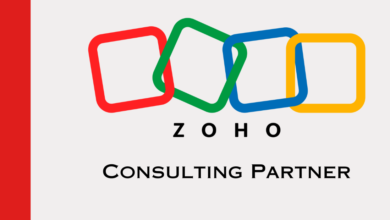ISO 13485 Training: Master Medical Device Quality Management for Compliance Success
ISO 13485 is the globally recognized standard for quality management systems (QMS) in the medical device industry. As regulatory demands grow, organizations must ensure their quality management systems align with ISO 13485 to maintain compliance and deliver safe, effective medical devices. ISO 13485 training equips professionals with the knowledge and skills needed to implement, maintain, and audit these systems effectively. This article explores the importance of ISO 13485 training, its key components, and how it supports compliance success.
What is ISO 13485?
ISO 13485 specifies requirements for a QMS where an organization needs to demonstrate its ability to provide medical devices and related services that consistently meet customer and regulatory requirements. The standard focuses on risk management, documentation, process controls, and the continuous improvement of quality management systems tailored to the medical device industry.
Why is ISO 13485 Training Important?
ISO 13485 training is crucial for professionals involved in the design, production, installation, and servicing of medical devices. Here are the main reasons why ISO 13485 training is vital:
- Ensures Regulatory Compliance: Training helps professionals understand the regulatory landscape, which is critical since ISO 13485 is often harmonized with global regulations such as FDA 21 CFR Part 820 in the U.S. and the EU MDR.
- Enhances Product Quality and Safety: A well-trained team can implement ISO 13485 requirements effectively, ensuring that products meet the highest quality and safety standards.
- Improves Risk Management: Training provides insights into risk management processes specific to medical devices, helping organizations minimize potential hazards and enhance patient safety.
- Boosts Audit Preparedness: Proper training prepares your team for both internal and external audits, ensuring your QMS is always audit-ready and compliant.
Key Components of ISO 13485 Training
ISO 13485 training programs typically cover several critical areas that empower participants to implement and maintain a compliant QMS. Here are the main components:
- Understanding ISO 13485 Requirements
Training begins with a comprehensive overview of the ISO 13485 standard, including its scope, key terms, and definitions. Participants learn about the structure of the standard, its clauses, and how they relate to medical device quality management.
- Focus Areas: QMS requirements, documentation control, management responsibility, resource management, product realization, and measurement, analysis, and improvement.
- Outcome: A clear understanding of the requirements necessary to achieve and maintain ISO 13485 certification.
- Risk Management in Medical Devices
One of the core elements of ISO 13485 is risk management. Training dives deep into risk management principles specific to the medical device industry, aligning with ISO 14971, the standard for risk management in medical devices.
- Focus Areas: Risk identification, risk analysis, risk evaluation, and risk control measures.
- Outcome: Participants gain skills in implementing effective risk management processes to ensure product safety.
- Documentation and Process Control
ISO 13485 emphasizes the importance of documentation and process control in maintaining a QMS. Training teaches participants how to develop, manage, and control documentation to comply with ISO 13485 requirements.
- Focus Areas: Creating standard operating procedures (SOPs), maintaining device history records (DHR), and ensuring document traceability.
- Outcome: Enhanced ability to establish robust documentation practices that support compliance and quality management.
- Internal Auditing Skills
Internal audits are essential for evaluating the effectiveness of your QMS. ISO 13485 training includes modules on planning and conducting internal audits, reporting findings, and implementing corrective actions.
- Focus Areas: Audit planning, checklist development, interviewing techniques, and non-conformance reporting.
- Outcome: Participants can perform thorough internal audits to identify areas of improvement and maintain compliance.
- Corrective and Preventive Actions (CAPA)
Training covers the CAPA process, which is crucial for addressing non-conformities and preventing their recurrence. Participants learn how to identify root causes, implement corrective actions, and verify their effectiveness.
- Focus Areas: Root cause analysis, CAPA documentation, and effectiveness checks.
- Outcome: Improved ability to resolve issues swiftly and enhance the overall QMS.
Benefits of ISO 13485 Training for Your Organization
Investing in ISO 13485 training brings numerous benefits to your organization, including:
- Enhanced Compliance and Certification Success: Training ensures that your team understands the standard’s requirements, leading to smoother certification audits and maintaining compliance with regulatory bodies.
- Increased Efficiency and Reduced Errors: Well-trained employees can streamline processes, reduce errors, and enhance the overall efficiency of the QMS.
- Improved Product Quality and Customer Satisfaction: By aligning with ISO 13485, your organization can produce higher-quality products that meet customer expectations and regulatory standards, leading to increased customer satisfaction.
- Competitive Advantage: ISO 13485 certification, supported by trained professionals, sets your company apart in the marketplace, enhancing your reputation and opening doors to new business opportunities.
- Proactive Risk Management: Training equips your team with the skills to identify and mitigate risks early in the product lifecycle, reducing the likelihood of product recalls and improving patient safety.
Who Should Attend ISO 13485 Training?
ISO 13485 training is suitable for a wide range of professionals involved in the medical device industry, including:
- Quality Managers: To understand and implement QMS requirements effectively.
- Regulatory Affairs Specialists: To ensure products meet regulatory compliance.
- Design and Development Engineers: To incorporate quality management principles into product design.
- Production Supervisors and Operators: To ensure manufacturing processes comply with ISO 13485 standards.
- Internal Auditors: To enhance auditing skills specific to the medical device industry.
Types of ISO 13485 Training Available
There are several types of ISO 13485 training programs available to meet different needs:
- Introduction to ISO 13485: For those new to the standard, this training provides a basic understanding of the requirements and benefits of ISO 13485.
- ISO 13485 Implementation Training: Focuses on how to implement ISO 13485 within an organization, including developing procedures and processes.
- Internal Auditor Training: Prepares participants to conduct internal audits against ISO 13485, focusing on auditing techniques and report writing.
- Lead Auditor Training: An advanced program designed for those who will be leading audits within their organization or as third-party auditors.
Choosing the Right ISO 13485 Training Provider
Selecting the right training provider is essential to ensure your team gains the necessary skills. Consider the following when choosing a provider:
- Accreditation and Recognition: Ensure the provider is accredited by relevant bodies and offers recognized certification upon completion.
- Experienced Trainers: Look for trainers with hands-on industry experience and a thorough understanding of ISO 13485.
- Interactive Learning: The best programs offer interactive sessions, case studies, and practical exercises to reinforce learning.
- Flexible Formats: Consider providers that offer both in-person and online training to accommodate your team’s schedules.
Conclusion: Achieve Compliance Success with ISO 13485 Training
ISO 13485 training is an invaluable investment for medical device companies striving to meet global quality standards. By equipping your team with the knowledge and skills needed to implement, manage, and audit a compliant QMS, you can ensure your products meet regulatory requirements, enhance patient safety, and maintain a competitive edge in the market. With the right training, your organization will be well-prepared to navigate the complexities of the medical device industry and achieve compliance success.



